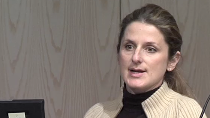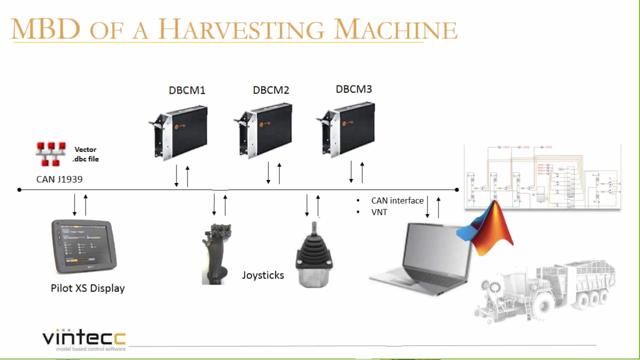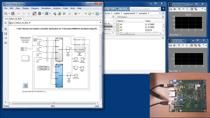AI for Simulink Users
Overview
Deep learning and machine learning techniques have demonstrated the ability to solve complex problems that traditional methods can’t adequately model, such as detecting objects in an image or accurately predicting battery state-of-charge based on current and voltage measurements. While these capabilities by themselves are remarkable, the AI model typically represents only a small piece of a larger system. For example, embedded software for self-driving car may have different adaptive cruise control, lane keep control, sensor fusion, LIDAR logic, and many other components in addition to deep learning-based computer vision. How do you integrate, implement, and test all these different components together while minimizing expensive testing with actual hardware and the vehicle?
In this session you will learn how to use AI with Model-Based Design to make the complexity of such systems more manageable, use simulation for adequate testing, and deployment to targeted hardware (ECU, CPU, and GPU) using code generation. We will illustrate this approach using a few industry examples.
About the Presenters
Emmanouil Tzorakoleftherakis is a product manager at MathWorks, with a focus on reinforcement learning and control systems. Emmanouil has a M.S. and a Ph.D. in Mechanical Engineering from Northwestern University, specializing in control systems and robotics, and a B.S. in Electrical and Computer Engineering from University of Patras in Greece.
Bill Chou is a product manager for code generation at MathWorks and has been working with code generation technologies for the past 15 years. Bill holds an M.S. degree in Electrical Engineering from the University of Southern California and a B.A.Sc degree in Electrical Engineering from the University of British Columbia.
Bernhard Suhm is the product manager for Machine Learning at MathWorks. He works closely with customer facing and development teams to address customer needs and market trends in our machine learning related products, primarily the Statistics and Machine Learning toolbox. Prior to joining MathWorks Bernhard applied analytics to optimizing the delivery of customer service in call centers, after specializing in speech user interfaces in his PhD from Carnegie Mellon and Karlsruhe University (Germany).
Recorded: 9 Dec 2020




